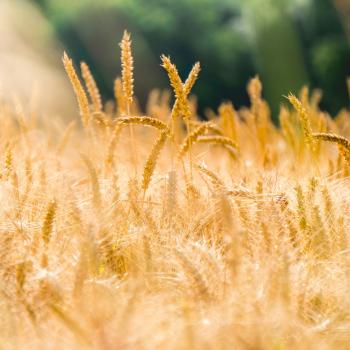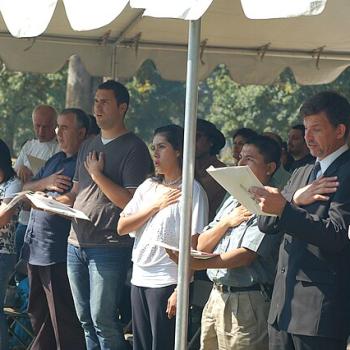Lectionary Reflections
Isaiah 49:1-7
January 19, 2014
Today we are blessed to read one of the Bible's greatest passages, indeed a text that stands at the very heart of the Bible's central claim. The servant of YHWH has been chosen, "chosen before I was born" (Is. 49:1), "so that my (YHWH's) salvation may reach to the end of the earth" (Is. 49:6). For Christians, of course, the servant is Jesus whose epiphany we remember and celebrate and now attempt to illuminate for our time. Why has Jesus come? Many of the answers to that crucial question are to be found in II-Isaiah's so-called servant songs. Last week we looked at the first of those songs, Isaiah 42:1-9, and today we turn to the second.
Many Christian traditions celebrate Human Relations Day this Sunday, a day when we claim that the vast diversity of the human family is a fabulous gift from our creator rather than a burden to be endured and feared. In the USA in 2014, we 300 million residents are experiencing a wonderful experiment, an experiment fraught both with promise and danger. The USA may well be the most diverse nation ever known in the long history of the human family. When I arrived in Dallas, TX in 1968, the city was known as a deeply segregated one, sharply divided among its primarily Anglo, Latino/a, and African-American citizens. We all thought of Dallas as a city beginning its struggle to find unity among and with its essentially three-faced population.
Today, that human face has changed radically. I recently learned that there are some 220 (!) first languages spoken in Dallas County. We have here now about 50,000 Vietnamese and Thai citizens, perhaps 20,000 Koreans, along with an astonishing 10,000 Tongans and Samoans! In the Dallas public schools, among 160,000 students, only some 9 percent name themselves Anglo in origin. The days when a "White Citizens Council" made many of the city's major decisions have passed away forever.
How are we Christians called to address this amazing diversity? Many call for the older idea of a "melting pot," wherein all new residents are asked to "fit in" to the ways and language of the once-dominant white majority. Many others hope that these diverse residents will teach us older types new ways of living and being and speaking. After all, in the Dallas of today, as many speak Spanish as a first language as speak English. Is there a middle ground between these often contentious notions of living together?
Since I am not a sociologist, I have no easy practical solutions to the problem that we now all face when it comes to radical diversity. But since I am a biblical theologian, I do have some thoughts about how serious Bible readers might think about the problem and then might act on the basis of that thinking.
The servant song of Isaiah 49 begins with a loud proclamation to "the coastlands" and "to peoples from far away" (Is. 49:1). When "coastlands" are mentioned in the text, the implication is that even those who live in unimaginable places bordered by the vast ocean, far away from the safe deserts and mountains of Israel, are to witness what YHWH has done in calling the servant. YHWH's servant has been called and named before birth, having been known even in the mother's womb (Is. 49:1). The first characteristic of the servant is that his/her "mouth" was made by YHWH to be "a sharp sword" (Is. 49:2). It is important to note that this servant is decidedly not a warrior but an orator, whose words are sharp rather than whose iron swords are honed for battle. The later book of Revelation borrows this image in John's description of "one like a son of humanity" from whose mouth comes a "sharp two-edged sword" (Rev. 1:16). Thus, very earliest Christianity focused on the power of Jesus found in his words, not in his prowess as soldier or fighter.
Then the newborn servant is "hidden in the shadow of YHWH's hand," hidden in YHWH's "quiver" like a highly polished arrow (Is. 49:2). Unlike the first song of Isaiah 42 where the servant was said to not "lift his voice in the streets," the servant here is primarily a speaker of sharp words. Yet, like the first song the servant is not easily seen or perceived or heard, since he/she is hidden.
In verse 3 the servant is directly named as Israel (Is. 49:3): "You are my servant, Israel, in whom I will be glorified." This identification has caused an ocean of commentary. If Israel is the servant, then how can the servant lift up the fortunes of that same Israel? Perhaps by "Israel" the poet means a remnant of Israel, the exiles from Babylon or those who have maintained traditional faith throughout the horrors of exile or even one heroic individual who lives the will and work of YHWH on behalf of the people of Israel and of the whole world? The speculations have no end.
Still, as we saw in our discussion of the servant in Isaiah 42 last week, the specific identity of the servant is less significant than the work of the servant. Isaiah 49:5-6 makes that fact clear. "And now, says YHWH, the one who shaped me in the womb to be God's servant, to bring Jacob back to God, to gather Israel to God, because I am honored in the sight of YHWH, for God is my strength..." The servant at this point is convinced that the work to which he/she is called is the typical one as often outlined in the post-exilic literature of Israel. The chief task is to return the exiles to the Promised Land of God. Isaiah himself paints the famous pictures of Israel streaming back to Zion from the various places of their exile (see Is. 2 as perhaps the most familiar example). When the exiles return to Jerusalem, the glory of God will be revealed and all flesh will see it together, as Isaiah 40 says it.





